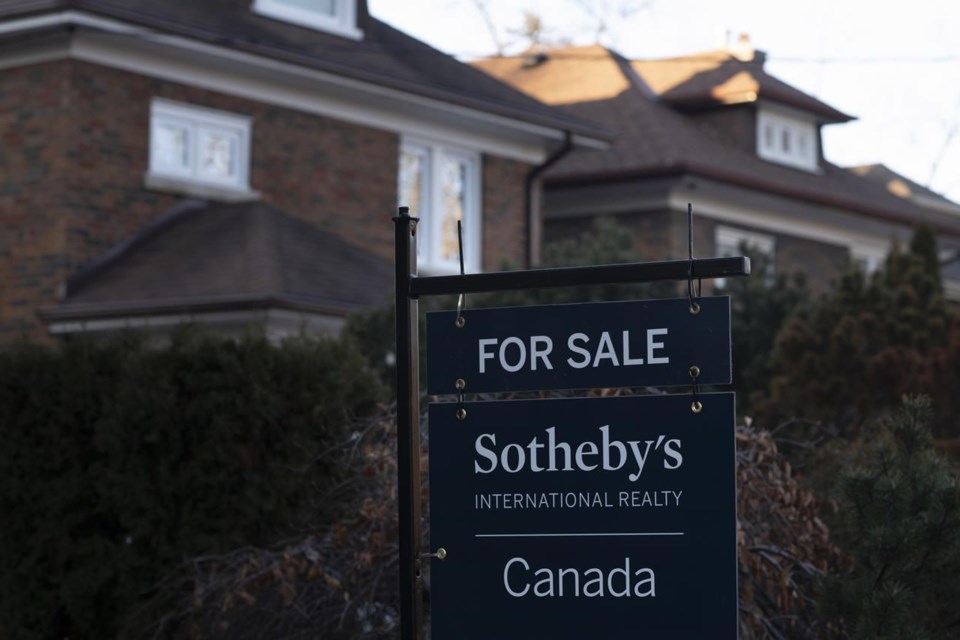TORONTO — One Bay Street economist says it's unlikely the housing market will flare up, despite the Bank of saąúĽĘ´«Ă˝'s decision to keep its key interest rate on hold on Wednesday.
Robert Kavcic, senior economist with BMO Capital Markets, said softer job markets, new listings on the housing market and a restrictive mortgage market are all working against the housing market this fall.Â
"The lowest mortgage rate available today would still be about (one percentage point) higher than the lowest rate we saw available back in the spring," Kavcic said in an interview.
"That makes a big difference," he added.
Earlier this year, Kavcic said, the market was expecting a recession, the bond market rallied and pulled the yields down. Those factors, combined with the Bank of saąúĽĘ´«Ă˝'s pause on interest rate hikes, filtered through the mortgage market to heat up the real estate sector.
"But right now, we're not getting that relief," he said.Â
Kavcic said the Bank of saąúĽĘ´«Ă˝'s decisions on interest rates affect the sentiment among the homebuyers and sellers. Â
"The minute the Bank of saąúĽĘ´«Ă˝ started to raise interest rates, the housing market went extremely quiet," he said.Â
On the flip side, he added, the market strengthened overnight when the central bank paused its rate hikes in the spring (it then hiked by a quarter-percentage point in both June and July before holding steady once more on Wednesday).
Kavcic said the Bank of saąúĽĘ´«Ă˝'s decision could give a psychological boost to the real estate market again, but without the same mortgage rate relief seen earlier this year, it won't have the same effect. Â
"I don't think it's going to translate as forcefully to the market picking up in the second half of the year," Kavcic said.
In his opinion, the pause could give buyers more confidence psychologically, but the financing is not nearly as cheap as it was back in the spring.
In a Re/Max report released Tuesday, 33 per cent of Canadians who were interested in buying and/or selling a property in the next 12 months said they would wait and see how interest rates play out. About half of the respondents said their decision to buy or sell a home would not change with the central bank's change in interest rates.
Kavcic predicted high volumes of new listings this fall but that the prices will continue to struggle, stagnating the market for the rest of the year and well into 2024.Â
Re/Max's forecast for fall showed the country's real estate market will soften with average home prices predicted to remain flat as the housing market deals with high interest rates and a lack of homes for sale.
"The market has to adjust to these higher rates," Kavcic said. "There's not a whole lot of room for prices to move."
This report by The Canadian Press was first published Sept. 7, 2023.
Ritika Dubey, The Canadian Press



